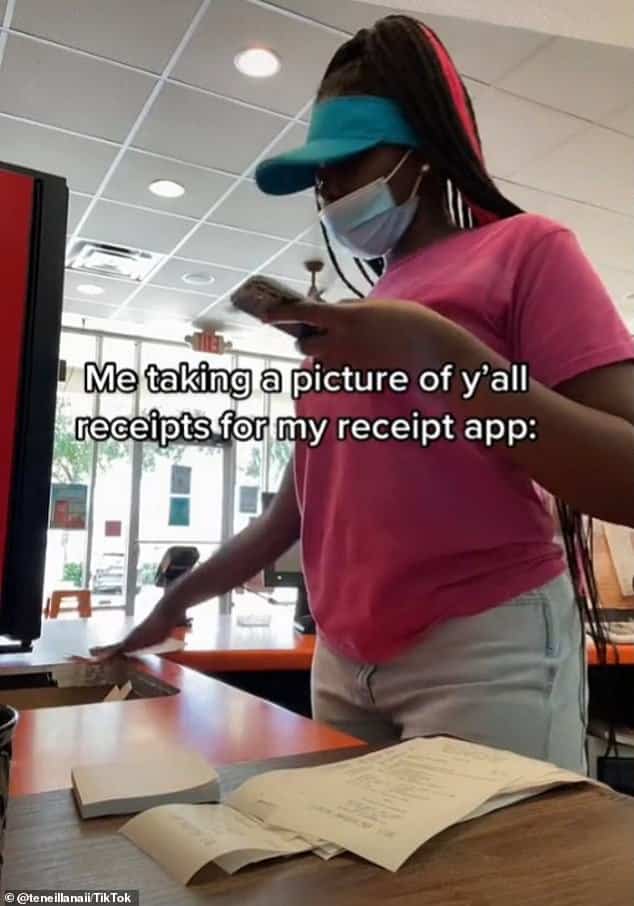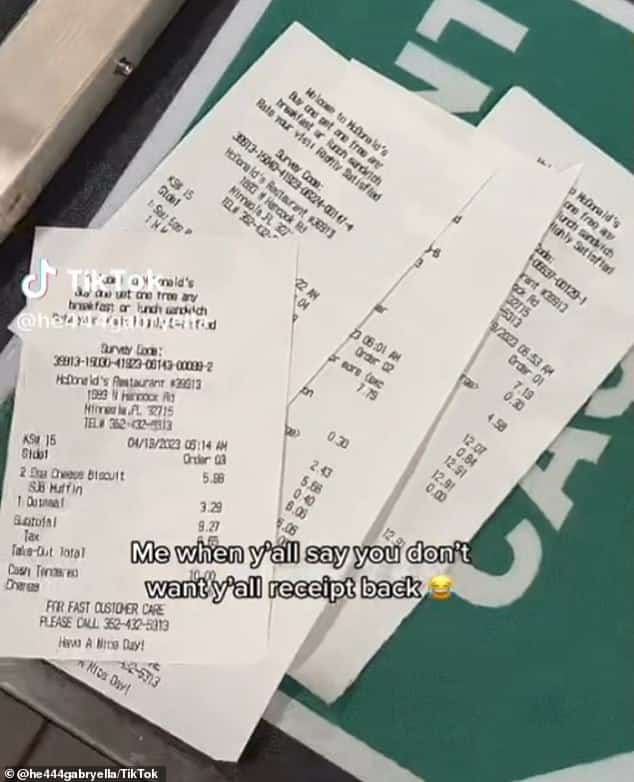In a growing trend, retail and fast-food workers are turning to TikTok to showcase a controversial practice of obtaining extra cash by utilizing customers’ neglected receipts. This method involves redeeming rewards on various cash-back apps, primarily the Fetch app, raising questions about ethics and the vulnerability of digital reward systems.

The TikTok Trend: Low-wage workers are using the social media platform to unveil their strategy of capitalizing on customers’ forgotten receipts. By redeeming these receipts through the Fetch app, workers can accumulate points based on the customers’ spending, ultimately converting them into various rewards.

The Fetch App Mechanics: The Fetch app relies on scanned receipts to track users’ spending at different retailers and fast-food establishments. When customers fail to take their receipts, workers seize the opportunity to redeem points for their accounts, amassing rewards that range from gift cards to cash.

- Publix Grocery Store Employee’s Revelation: A Florida Publix grocery store employee, under the TikTok handle @thatgirl.sonti, gained attention for exposing how she utilized customers’ abandoned receipts to accumulate rewards on the Fetch app. Although the exact financial gains remain unclear, the worker demonstrated how this practice could potentially generate cash.
- McDonald’s and Smoothie Store Workers: Other videos surfaced, showcasing employees from McDonald’s and a smoothie store in Florida posing with stacks of unclaimed receipts. The implication was that these workers intended to submit voucher requests on the Fetch app, highlighting a broader trend among service industry employees.
While the exact amount of money acquired through this method is uncertain, estimates suggest a significant expenditure, potentially exceeding $3,000, to access a $25 reward redemption. Viewer opinions on TikTok vary, with some sympathizing with desperate workers, while others criticize the effort required for minimal rewards.

As the TikTok trend gained momentum, reactions from viewers included skepticism and concern. Some argued that the practice reflects desperation among workers. Notably, comments on deleted videos highlighted the perceived difficulty and time investment required to obtain relatively modest rewards.

The TikTok trend shedding light on retail and fast-food workers exploiting customers’ discarded receipts prompts a broader discussion on the ethical implications of such practices. It raises questions about the security of cash-back systems and the need for enhanced measures to prevent fraudulent activities. As the debate unfolds, the digital age continues to reshape interactions between service industry workers and the systems designed to reward customer loyalty.


